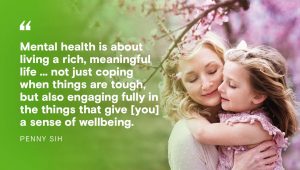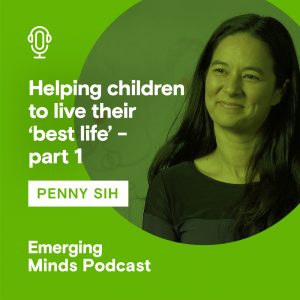Helping children to live their ‘best life’ – part one
Penny Sih is a clinical psychologist at Developing Minds. Over the past 17 years, she has developed engagement processes to help children and teens understand and move towards their ‘best life’. In episode one of this two-part series, Penny shares how the ‘best life’ approach can help practitioners to better understand the ‘whole child’ and the problems that affect them; and enable children and parents to be active participants in the therapeutic process.
Penny describes how practice with children who experience mental health difficulties has evolved from a focus on mother-child attachment, towards broader explorations of the systems and connections that shape a child’s life. She discusses the need to engage families from the outset, so that therapy is seen as a place where children’s ideas, values, knowledge and preferences are brought to the fore.
Penny shares her strategies for providing children with choice early in therapy sessions, so that they are supported to have control throughout the process. These strategies also show children that therapy can be fun. Penny also describes how she helps parents to understand their role in supporting the child’s best life.

In this episode you will learn:
- what the ‘best life’ approach means and what it can help the therapist to focus on in their engagements with children (06:04)
- effective engagement practices that can help children to feel less anxious or reluctant to talk with a therapist, and that set the scene for collaborative and child-focused practices (07:50)
- how Penny describes the ‘best life’ approach in her work with children and parents (08:57)
- how therapists can give children control or choice during the initial engagement phase of therapy, so that they can become more confident and energised (11:55)
- how the ‘best life’ model can be used to enhance a clinical assessment with a child (17:12).
Supporting resource:
- Helping children to live their ‘best life’ – part 2 podcast: https://emergingminds.frmdv.com/resources/podcast/helping-children-to-live-their-best-life-part-2/




